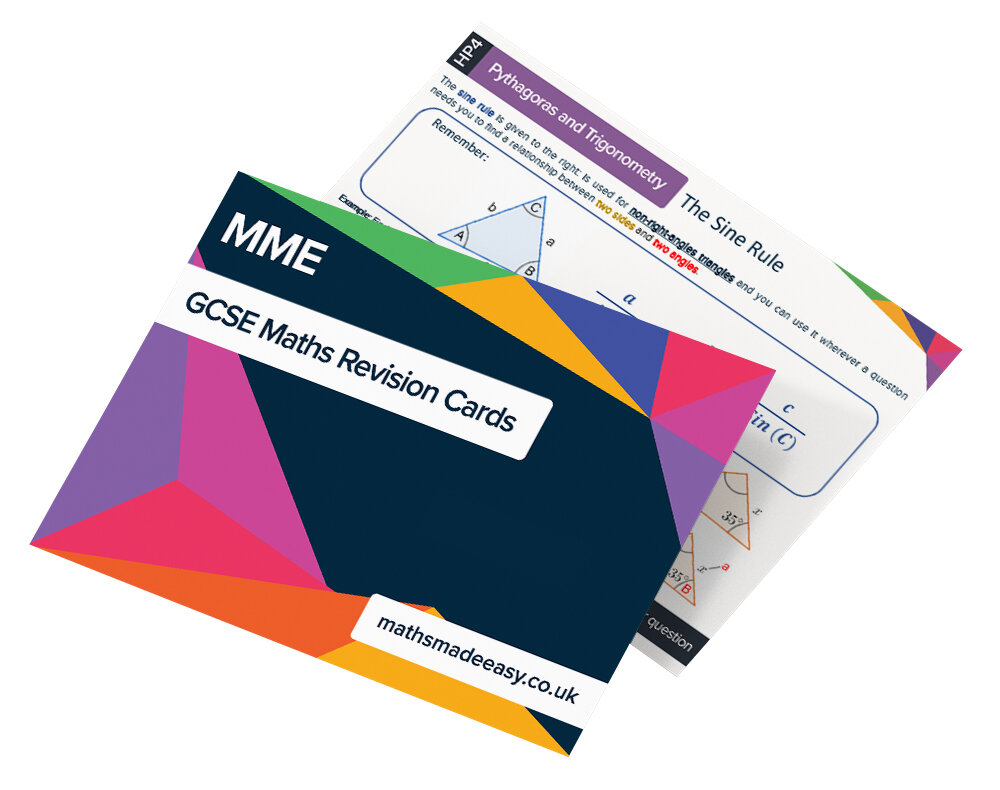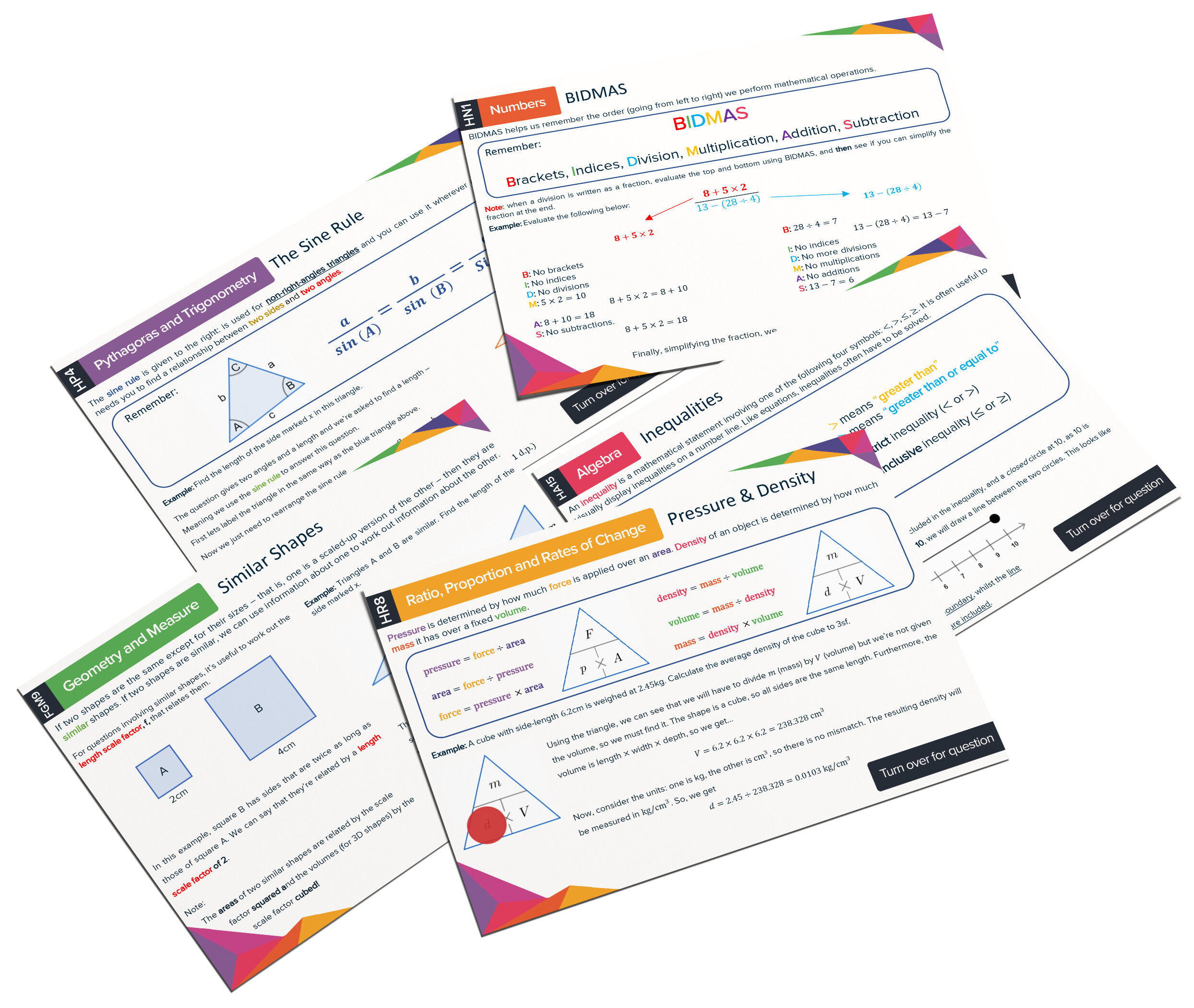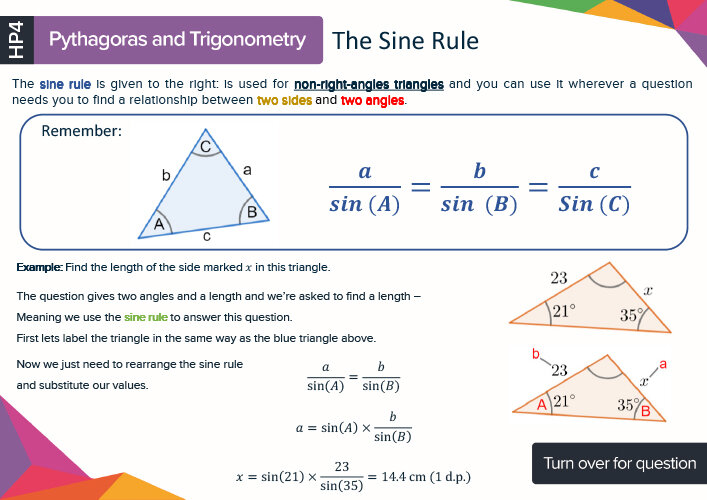In recent years flashcards and revision cards have become popular with students revising for their GCSE maths exams. These cards can be a very useful tool in helping students to prepare for their exams and there are many ways to use them. Our GCSE maths revision card guide below will hopefully give you some ideas of how to best utilise your flashcards.
Tip 1: Buy the best revision cards
Before you start revising you first must purchase a pack, ensuring you get the best cards. Check out the maths revision cards on Maths Made Easy. These cards are one of the most popular packs and for good reason, they cover the entire curriculum and are presented in a user-friendly format.
Use the code examcoach to get 10% off any product!
Tip 2: Identifying gaps
Once your pack arrives a really good starter exercise is to have a quick run through of the entire pack, looking at the topic titles and glancing at the content to determine which topics you are strong on and which ones you know you need to work on. Separate the cards into the two separate piles and then start to work through the topics. We think it is best if you revise one from each pile so that you give yourself a topic that you struggle on and then move onto something that you are fairly confident on so you feel like you are making good progress.
Tip 3: Cover up and test
You can test yourself on the key GCSE maths formula’s by covering up the card and seeing if you can remember it. This type of exercise is great for getting other people involved whether that is a study buddy or an enthusiastic parent.
Tip 4: Practise
Reading revision cards and improving your understanding of maths is good, but you really need to make sure you spend more time practising. The MME GCSE maths revision cards have worked examples as well as exam style questions on the back of every card.
Tip 5: Use other resources
Maths revision cards are great and a really useful revision aid but you should never over rely on one thing. Accessing GCSE maths revision materials and resources such as the predicted maths papers, is crucial to ensure you get use to the types of questions that are likely to appear in the exams.
Tip 6: Have breaks
When revising it is essential that you keep your mind fresh and ready to absorb as much information as you can and therefore you need to take regular breaks when revising from the maths flashcards. Shorter, intensive revision periods are usually more productive than 3 hours of revision with TV, music and social media on in the background.
We hope you have found our top tips useful and as ever we wish you all the best with your exam revision!




